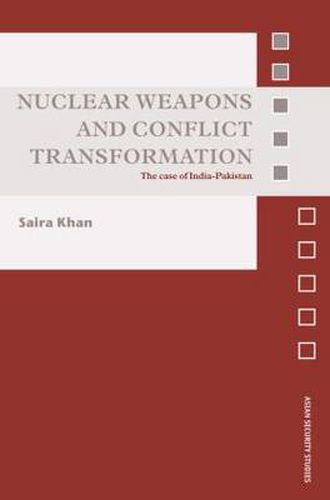Readings Newsletter
Become a Readings Member to make your shopping experience even easier.
Sign in or sign up for free!
You’re not far away from qualifying for FREE standard shipping within Australia
You’ve qualified for FREE standard shipping within Australia
The cart is loading…






This new volume explores what the acquisition of nuclear weapons means for the life of a protracted conflict. The book argues that the significance of the possession of nuclear weapons in conflict resolution has been previously overlooked. Saira Khan argues that the acquisition of nuclear weapons by states keeps conflicts alive indefinitely, as they are maintained by frequent crises and low-to-medium intensity violence, rather than escalating to full-scale wars. This theory therefore emphasises the importance of nuclear weapons in both war-avoidance and peace-avoidance. The book opens with a section explaining its theory of conflict transformation with nuclear weapons, before testing this against the case study of the India–Pakistan protracted conflict in South Asia. This book will be of much interest to students of strategic studies, IR and Asian politics and security.
$9.00 standard shipping within Australia
FREE standard shipping within Australia for orders over $100.00
Express & International shipping calculated at checkout
Stock availability can be subject to change without notice. We recommend calling the shop or contacting our online team to check availability of low stock items. Please see our Shopping Online page for more details.
This new volume explores what the acquisition of nuclear weapons means for the life of a protracted conflict. The book argues that the significance of the possession of nuclear weapons in conflict resolution has been previously overlooked. Saira Khan argues that the acquisition of nuclear weapons by states keeps conflicts alive indefinitely, as they are maintained by frequent crises and low-to-medium intensity violence, rather than escalating to full-scale wars. This theory therefore emphasises the importance of nuclear weapons in both war-avoidance and peace-avoidance. The book opens with a section explaining its theory of conflict transformation with nuclear weapons, before testing this against the case study of the India–Pakistan protracted conflict in South Asia. This book will be of much interest to students of strategic studies, IR and Asian politics and security.